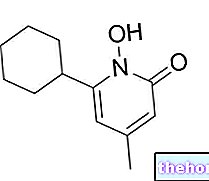
What is Protelos?
Protelos is a drug containing the active substance strontium ranelate, available in 2 g sachets containing a granules for oral suspension.
What is Protelos used for?
Protelos is indicated for the treatment of osteoporosis (a disease that makes bones fragile) in women who have been through the menopause to reduce the risk of vertebral and hip fractures.
The medicine can only be obtained with a prescription.
How is Protelos used?
The recommended dose of Protelos is one sachet once a day. The contents of the sachet should be mixed in a glass of water to form a suspension to drink immediately after preparation. Protelos should be taken at least two hours after ingestion of food, milk, dairy products or calcium supplements, preferably at bedtime. Protelos is intended for long-term use. Patients being treated with Protelos should receive a calcium or vitamin D supplement if their dietary intake is insufficient.
How does Protelos work?
Osteoporosis occurs when old bone, which degenerates naturally, is not replaced with enough new tissue. Gradually, bones become thin and brittle, which increases the likelihood of fractures. Osteoporosis is more common. in women after menopause, when levels of the female hormone estrogen, the hormone that helps keep bones healthy, drop.
The active substance in Protelos, strontium ranelate, acts on the bone structure. Once it reaches the intestine, strontium ranelate releases strontium, a substance that is absorbed by the bones. The mechanism of action of strontium is not fully known, as far as osteoporosis is concerned, but it reduces bone destruction and stimulates the formation of bone tissue.
How has Protelos been studied?
Protelos was studied in two large studies involving nearly 7,000 elderly women. Just under a quarter of the patients were over 80 years old. The first study involved 1,649 women with osteoporosis with previous vertebral fractures, while the second study involved over 5,000 women with osteoporosis localized in the hip and femur region. In both studies, the effectiveness of Protelos was compared to placebo (a dummy treatment) and the main measure of effectiveness was the reduction in the risk of a new bone fracture with Protelos. In the first study, this was the number of patients who, over three years, had developed a new vertebral fracture and, in the second study, the metric was the number of patients who suffered a new peripheral (non-vertebral) fracture due to osteoporosis.
What benefit has Protelos shown during the studies?
In the first study, Protelos was found to be effective in reducing the risk of new vertebral fractures by 41% over three years: 21% of the 719 women treated with Protelos developed a new vertebral fracture compared to 33% of the 723 patients treated with placebo.
Overall, the results of the second study alone were not sufficient to demonstrate the benefits of Protelos in preventing peripheral fractures. However, if only women 74 years of age or older with marked femoral fragility are considered, the results indicate a reduction in the risk of hip fractures when taking Protelos.
Looking at the results of both studies together, fewer women in the Protelos group developed peripheral fractures in parts of the body other than the spine (including the hip) than in the placebo group (331 out of 3 295 in the Protelos group compared to 389 out of 3 256 in the placebo group), thus demonstrating a reduced risk of fracture.
What is the risk associated with Protelos?
The most common side effects seen with Protelos (seen in between 1 and 10 out of 100 patients) are headache, disturbed consciousness (fainting), memory loss, nausea, diarrhea, loose stools, dermatitis (skin inflammation ), eczema (scaly rash), venous thromboembolism (blood clots in the veins) and increased levels of creatine kinase (an enzyme found in muscle tissue) in the blood. For the full list of side effects reported with Protelos, see the package leaflet.
Protelos must not be used in people who may be hypersensitive (allergic) to strontium ranelate or any of the other ingredients.
Why has Protelos been approved?
The Committee for Medicinal Products for Human Use (CHMP) decided that Protelos's benefits are greater than its risks for the treatment of osteoporosis in postmenopausal women to reduce the risk of vertebral and hip fractures. The committee therefore recommended the granting of a marketing authorization for Protelos.
Other information about Protelos:
On 21 September 2004, the European Commission granted Les Laboratoires Servier a "Marketing Authorization" for Protelos, valid throughout the European Union. The "Marketing Authorization" was renewed on 21 September 2009.
For the complete version of the Protelos EPAR click here.
Last update of this summary: 09-2009.
The information on Protelos - strontium ranelate published on this page may be out of date or incomplete. For a correct use of this information, see the Disclaimer and useful information page.




























